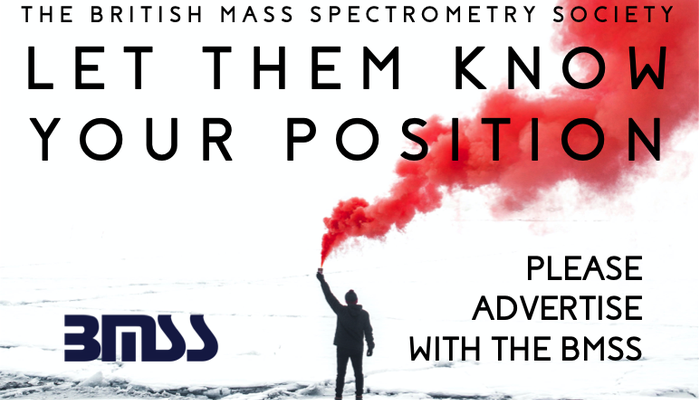Mass spectroscopy imaging of plant-fungi interactions: understanding symbiosis for sustainable crop production
- Vacancy Reference Number
- RR/SU
- Closing Date
- 30 Mar 2020
- Salary
- £15,009 per annum
- Address
- Rothamsted Research, Harpenden, Hertfordshire, AL5 2JQ
- Duration
- 4 year
Key Information:
Fully Funded Rothamsted / Swansea (BBSRC SWBio DTP) PhD Studentship: Mass spectroscopy imaging of plant-fungi interactions: understanding symbiosis for sustainable crop production
This studentship is funded by the Biotechnology and Biological Sciences Research Council (BBSRC) as part of the South West Biosciences Doctoral Training Partnership (SWBio DTP).
Subject areas: Plant developmental genetics.
Biology Supervisors: Professor William Griffiths (lead supervisor, Swansea University) Professor Yuqin Wang (Swansea University) Dr Peter Eastmond (lead supervisor, Rothamsted Research) Dr Richard Haslam (Rothamsted Research).
Project Summary: A major limitation to plant growth is restricted access to nutrients in the soil. To improve nutrient acquisition, most land plants enter a symbiosis with arbuscular mycorrhizal (AM) fungi. In return for mineral nutrients, the plants provide fixed carbon to the obligate biotrophic fungi. This nutrient exchange takes place through highly branched hyphal structures called ‘arbuscules’ that form in the inner cortical cells of the root. Until recently, AM fungi were thought to receive carbon from their host plants solely in the form of sugars. However, this paradigm changed when work from Rothamsted Research showed that plants supply AM fungi with most of their carbon in the form of lipids (Luginbuehl et al., [2017] Science 356, 1175).
The aim of this project is to understand how plants supply lipids to AM fungi, what type of lipids they use and how this process is regulated. To do this we will combine plant molecular genetic approaches with high spatial-resolution mass spectrometry imaging (MSI), using state-of-the-art MSI instrumentation at Swansea University. MSI has not been used previously to study AM symbiosis, but this technique has the power to measure the lipid composition of individual root cells harbouring arbuscules. This work will provide foundation knowledge of nutrient exchange in AM symbiosis that can inform new approaches to achieve more sustainable crop production.
We want to support diverse and inclusive work environments. We, therefore, welcome applications from individuals regardless of their race, ethnicity, sexual orientation, religion, age, gender, or disability status. We welcome applications from individuals who have previously studied at any recognised Higher Education Institute and from a range of career paths (please refer to the SWBio DTP academic criteria for eligibility), including individuals who have previously trained in the sciences and are wanting to return to scientific research.
Eligibility Academic Criteria: Applicants for a studentship must have obtained, or be about to obtain, a First or Upper Second Class UK Honours degree, or the equivalent qualifications gained outside the UK, in an appropriate area of science or technology. Applicants with a Lower Second Class degree will be considered if they also have a Master’s degree or have significant relevant non-academic experience. In addition, due to the strong mathematical component of the taught course in the first year and the quantitative emphasis in our projects, a minimum of a grade B in A-level Maths or equivalent qualification or experience is required. Equivalent qualifications/experience Physics A-level (grade B and above). Undertaking units as part of your degree that have a significant mathematical component (significant mathematical component examples include; maths, statistics, bioinformatics). Applicants must ensure they highlight their Maths background within their application and upload any supporting evidence.
Residence criteria Funding is available to UK and EU nationals who have established UK residency (EU nationals must have ordinarily lived in the UK throughout the three years preceding the start of the studentship). Applicants from EU countries who do not meet the residency requirements may still be eligible for a fees-only award. Funding A fully funded four-year SWBio DTP studentship will cover: a stipend (at the standard UKRI rate; £15,009 per annum for 2019-2020) research and training costs UK/EU tuition fees (at the standard UKRI rate) additional funds to support fieldwork, conferences and a 3-month internship
How to Apply: Please download and complete the Application Form and Referee Form from the Rothamsted Research website. All applications should include a fully completed application form, CV, a transcript of module marks and two references. The reference form which will need to be completed by your referees can be found on the downloads section of the Rothamsted Research website. These references should be sent directly from the referees to Donna Fellowes (rres.graduate-studies@rothamsted.ac.uk) by the deadline: Midnight, 30th March 2020.
IMPORTANT: PLEASE ENSURE THAT YOU CONTACT YOUR REFEREES TO INFORM THEM THAT REFERENCES MUST BE SUBMITTED PRIOR TO THE DEADLINE.
The application deadline for this studentship is midnight, 30 March 2020. Informal enquiries are welcome and should be directed to Professor William Griffiths (Swansea University, w.j.griffiths@swansea.ac.uk) or Dr. Peter Eastmond (Rothamsted Research, peter.eastmond@rothamsted.ac.uk).
Further Information
https://www.swansea.ac.uk/postgraduate/scholarships/research/biosciences-rothamsted-swbio-phd-mass-spectroscopy.php
https://www.rothamsted.ac.uk/studentships/mass-spectroscopy-imaging-plant-fungi-interactions-understanding-symbiosis-sustainable
https://www.swbio.ac.uk/
Contact Details
w.j.griffiths@swansea.ac.uk

